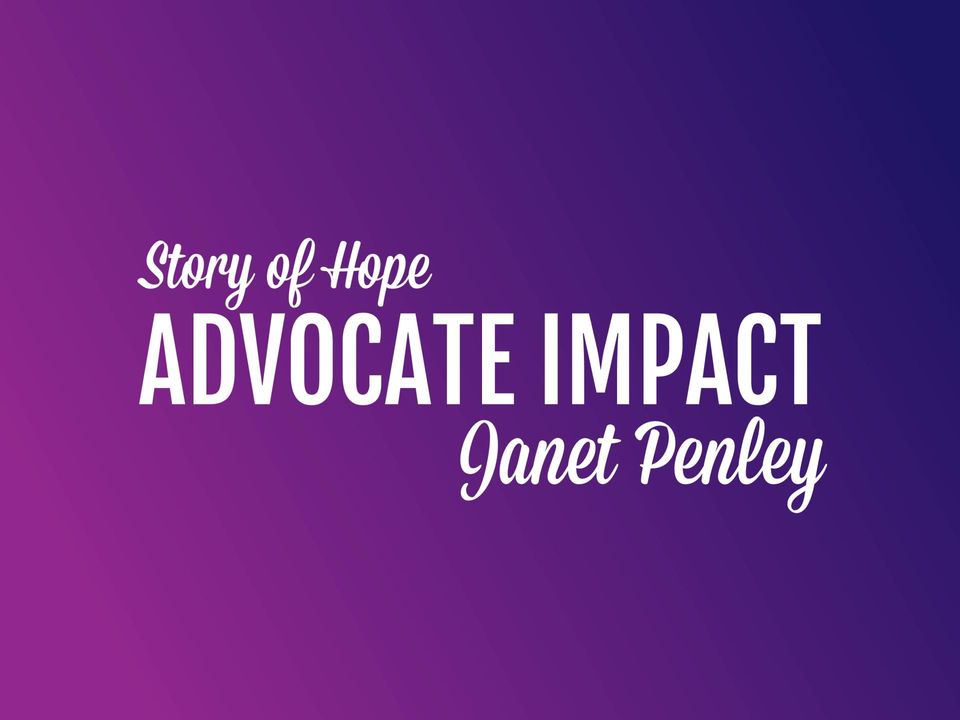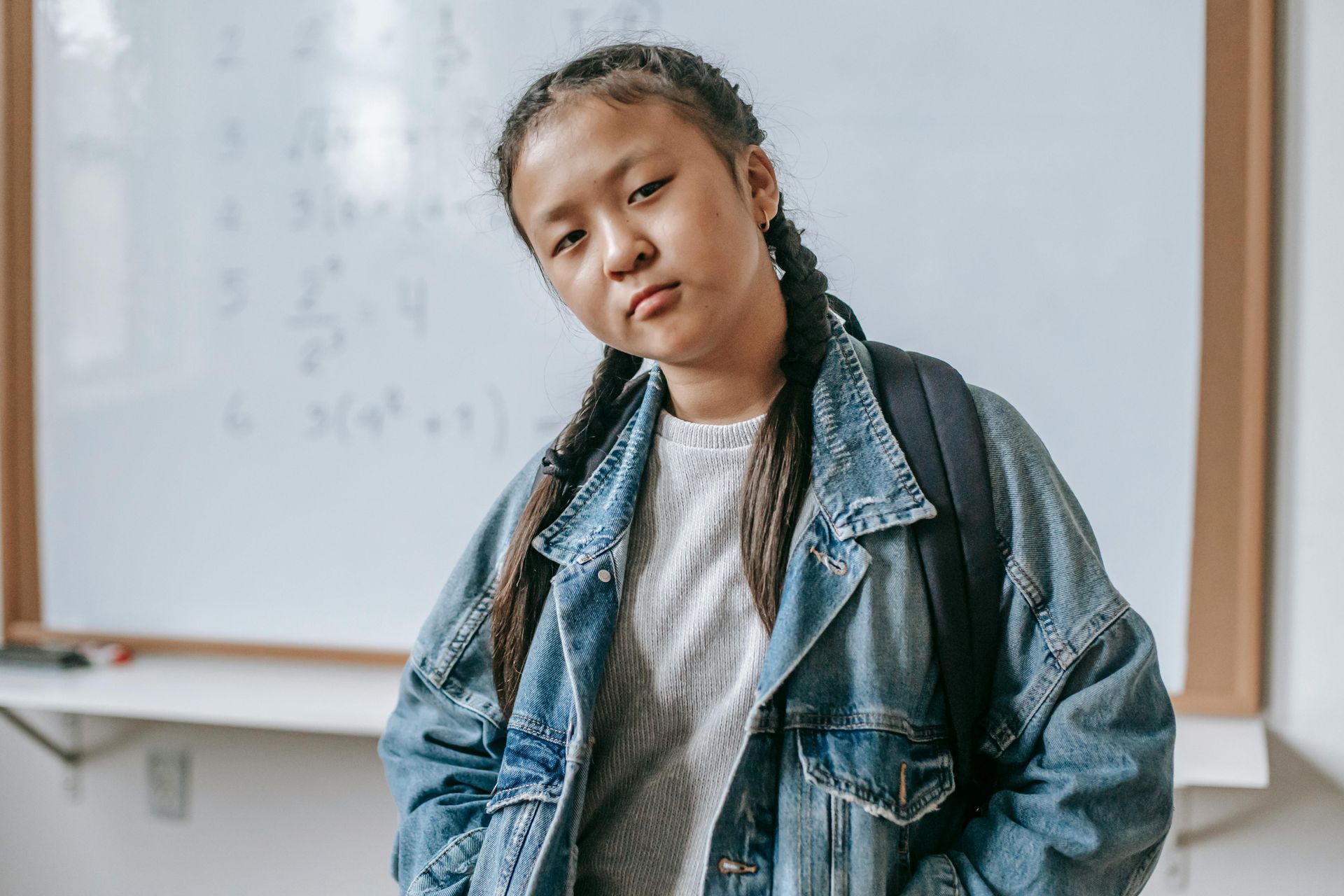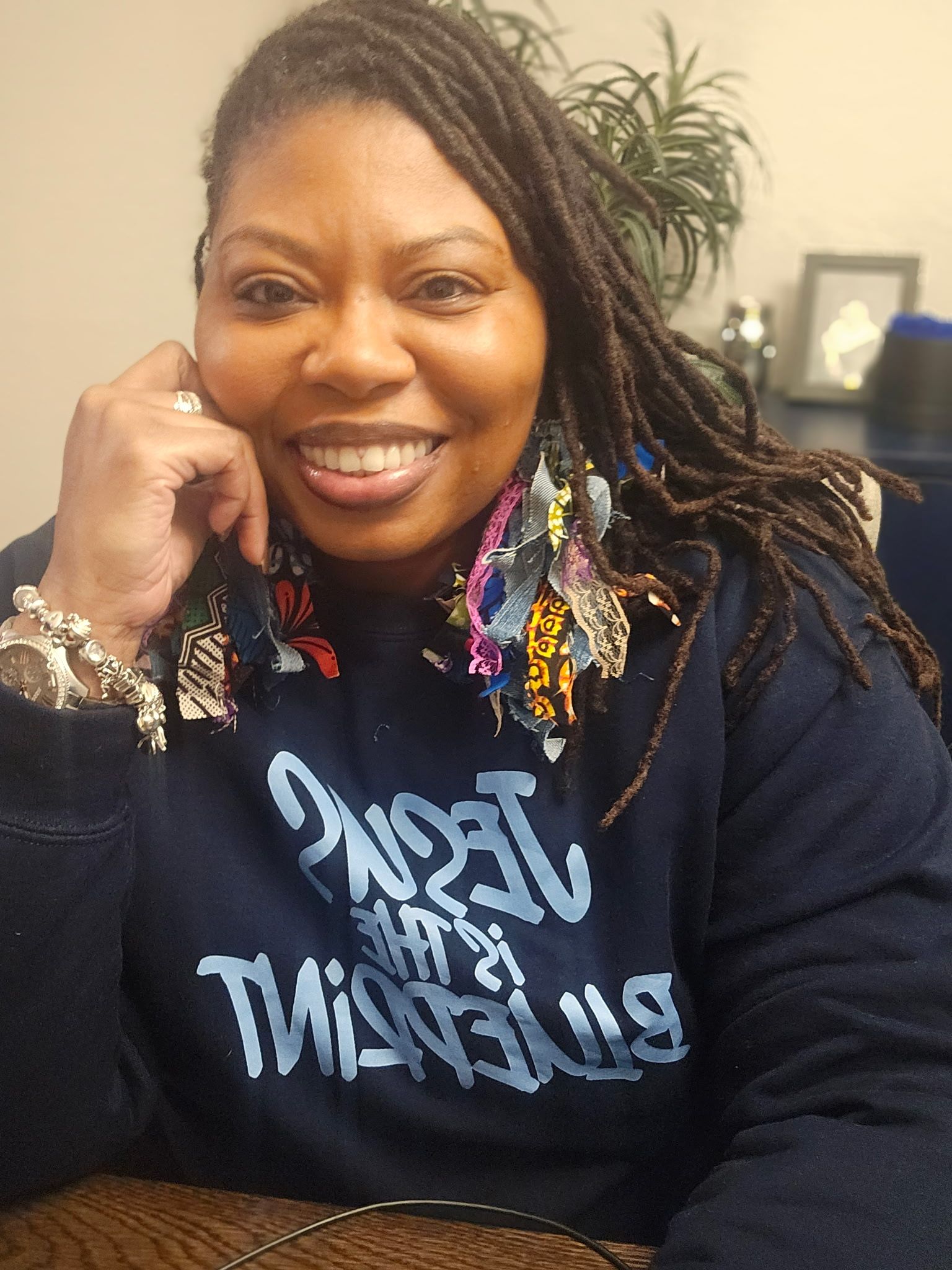Story of Hope: Janet Penley
October Advocate Impact Story
Written By: Janet's Advocate Supervisor

This case started due to allegations of physical abuse of 2-year-old Joshua. The Department received a referral stating that Joshua had bruising on the left side of his face to his ear. Initially, the family denied that any abuse or neglect had occurred in the home, but then later the mother called CPS and confirmed that her boyfriend had slapped the child. The Department requested that the boyfriend move out of the home, and they started working services without any legal intervention.
Unfortunately, the mother was not able to be protective of Joshua and still allowed her boyfriend around her son, which put him at risk of ongoing physical abuse. Joshua and his baby brother Shawn were ultimately removed from the home and placed in foster care at an emergency shelter.
At the 1st hearing, the Judge granted the removal, but made the unique recommendation that the children be placed with their mother, and that Shawn’s father not be allowed to have unauthorized visits or contact with the children. The Judge was hopeful that with services, the family could be quickly reunified and that the bond with the mother could continue if they were with her. The Judge also requested that a CASA be appointed as soon as possible to ensure that there would be an additional person to check on these kids.
Janet and Stephen Penley were quickly assigned to this case. Janet is a tenured CASA volunteer who had expressed a desire to work more closely with parents on her next case if possible, something this case had. The mother on this case was only 17 and had not had a very stable childhood, and would need all the positive support she could get.
Janet quickly got in contact with the CPS worker and the mother in order to visit the children. She realized that the mother was now living with the paternal grandmother with the children. The grandmother had expressed concerns that the mother would leave with the children for long periods of time, and she wasn’t sure where they were going or what they were doing. There was already concern that the mother was not being protective of the children, and after several attempts to ensure that the children would be safe with the mom, the children were ultimately placed in a foster home.
The boys were initially placed in a foster home together, but it was quickly determined that Joshua needed to be in a foster home where the foster parents could devote all of their attention to him. He was having a lot of behavioral issues and anxiety and the foster parents could not care for both children together. Joshua was moved into a new foster home, and Janet helped with the transition and ensured that play therapy was set up as soon as possible.
As the case continued to progress, the mother was trying to make progress, but found it hard to leave her boyfriend permanently. Janet kept in contact and continued to encourage the mother to work her services and learn from her classes. In the meantime, both boys adjusted to their foster placements, and were doing well. Both sets of foster parents acknowledged the importance of the sibling connection and made time to set up play dates and even would celebrate holidays and go on vacations together. They would even let the boys FaceTime each night to say good night to each other.
Both sets of foster parents acknowledged the importance of the sibling connection and made time to set up play dates and even would celebrate holidays and go on vacations together.
As trial approached, a paternal aunt was identified that wanted to have placement of Shawn only. The Department did a home assessment, and recommended that Shawn should be moved and placed with family. Janet went to visit the aunt and observed multiple visits to ensure that she could make an informed recommendation about whether a placement change would be in the best interest of the children. The parties were not all in agreement about changing placement, so a hearing was set.
Janet was not recommending a change in placement for Shawn. She was called to testify, and she stressed the importance of the sibling bond. She stated that even though the brothers are not placed together, the current foster parents were encouraging that sibling bond. She stated that the visits could probably not continue if the placement changed. She also stressed the fact that Shawn had now been with the foster parents for a year and that he was well bonded and did not really know the aunt even though she was family. Janet was also very concerned about the potential for the paternal side of the family to have ongoing access to the child, like what had happened in the past. After Janet’s testimony, the Judge denied the request to move the child and ordered that Shawn should stay in his current foster home.
[Janet] was called to testify, and she stressed the importance of the sibling bond.
Janet’s testimony was powerful because at this point, she had been on the case the longest since the original CPS worker had resigned, and a new worker had been recently assigned. Janet’s testimony also made an impact because she had visited not only the foster parents, but she had also observed the relative’s home, and visits with the child as well. This was something that the caseworker could not testify to.
The day of trial arrived, the parents on the case were still in a relationship, the father of Shawn was also pending a criminal trial for the injury to Joshua, and the mother was pregnant and had multiple warrants. The parents were not able to take care of their children, so they ended up relinquishing their rights. The current goal is for both boys to be adopted, and Janet will continue to fight for their rights to stay together when that happens.
Help us provide more Advocates like Janet who are willing to fight for children like Joshua and Shawn:
Fund a Hope
In December 2024, the Department requested TMC for a youth, Zoe, who was found to be homeless after both parents refused to accept parental responsibility. The mother had an extensive CPS history, and the alleged father had CPS history and a criminal history. While in care, life became challenging as Zoe made decisions that jeopardized placement; choosing to skip school, run away from placement, and get arrested for a misdemeanor charge. As a result of these behaviors, the Department placed Zoe in a facility out of state. In August 2025, Staff Advocate, Yvonne, accepted the Crossover Court Case involving Zoe. During the initial Zoom meeting between Yvonne and Zoe, the youth shared her love for sketching, singing, and making people smile. Zoe further shared her hopes and dreams with Yvonne; stating that if parental rights were terminated, she hopes to be adopted by a loving family and wants to pursue her dream of having a career in law enforcement. Recently, Yvonne had the opportunity to visit Zoe at her out-of-state placement, where their conversations were not limited by time on a video call. When Yvonne met Zoe in person, she shared that she couldn’t sleep the morning of Yvonne’s arrival because she feared that Yvonne would be another adult who did not show up for her. Yvonne was able to lay that worry to rest by simply keeping her word, a small act that means the world to the children CASA serves. During the visit, Zoe shared that she wanted to make her CASA proud by improving her school grades, staying out of trouble with peers at placement, and staying busy with extracurricular activities. Yvonne was happy to hear Zoe share her aspirations and encouraged Zoe to continue on this positive path. The conversations about Zoe’s day-to-day happenings in life led her to share the more traumatic events with Yvonne. Yvonne listened and provided a space for Zoe to share what she was comfortable with. Yvonne encouraged Zoe to continue processing her trauma and grief with her therapist and find peace, past the pain of being estranged from her family and individuals whom she trusted. Despite the setbacks Zoe has endured in efforts to restore family connections, Yvonne continues to show up and support Zoe in self-advocating for her educational and placement needs as she approaches adulthood. Zoe’s educational goal is to attend her senior prom and walk across the stage at a public high school to receive her diploma. Most importantly, Zoe hopes to be placed in a Texas foster home where she will be protected, loved, and trusted. Regardless of where life and the case takes Zoe, Yvonne will be there at every turn.







